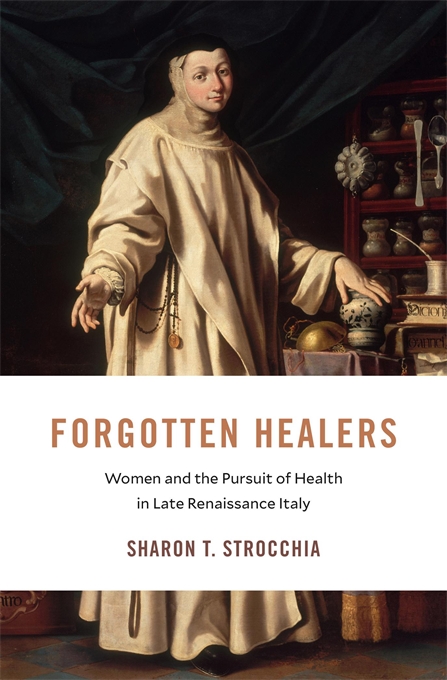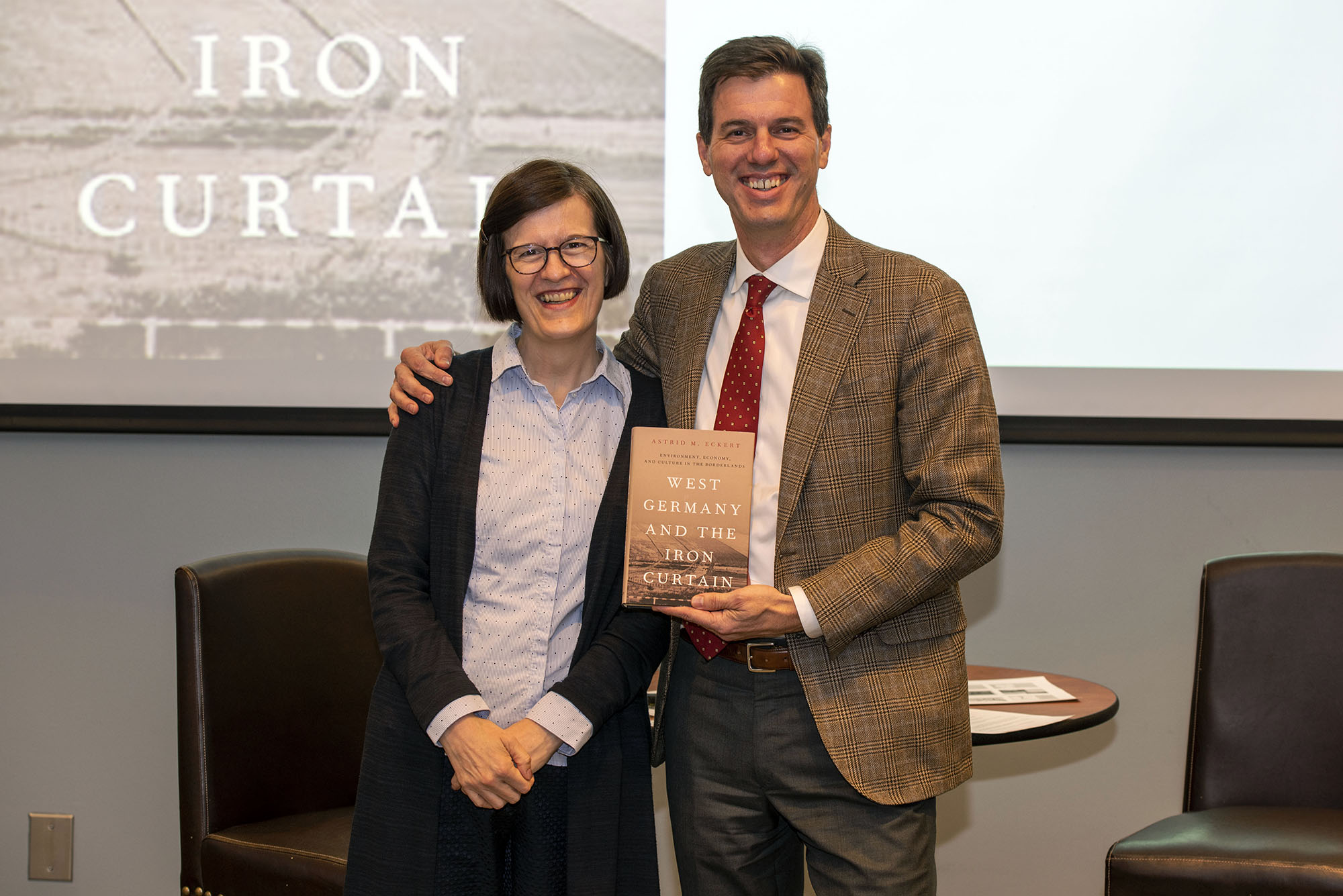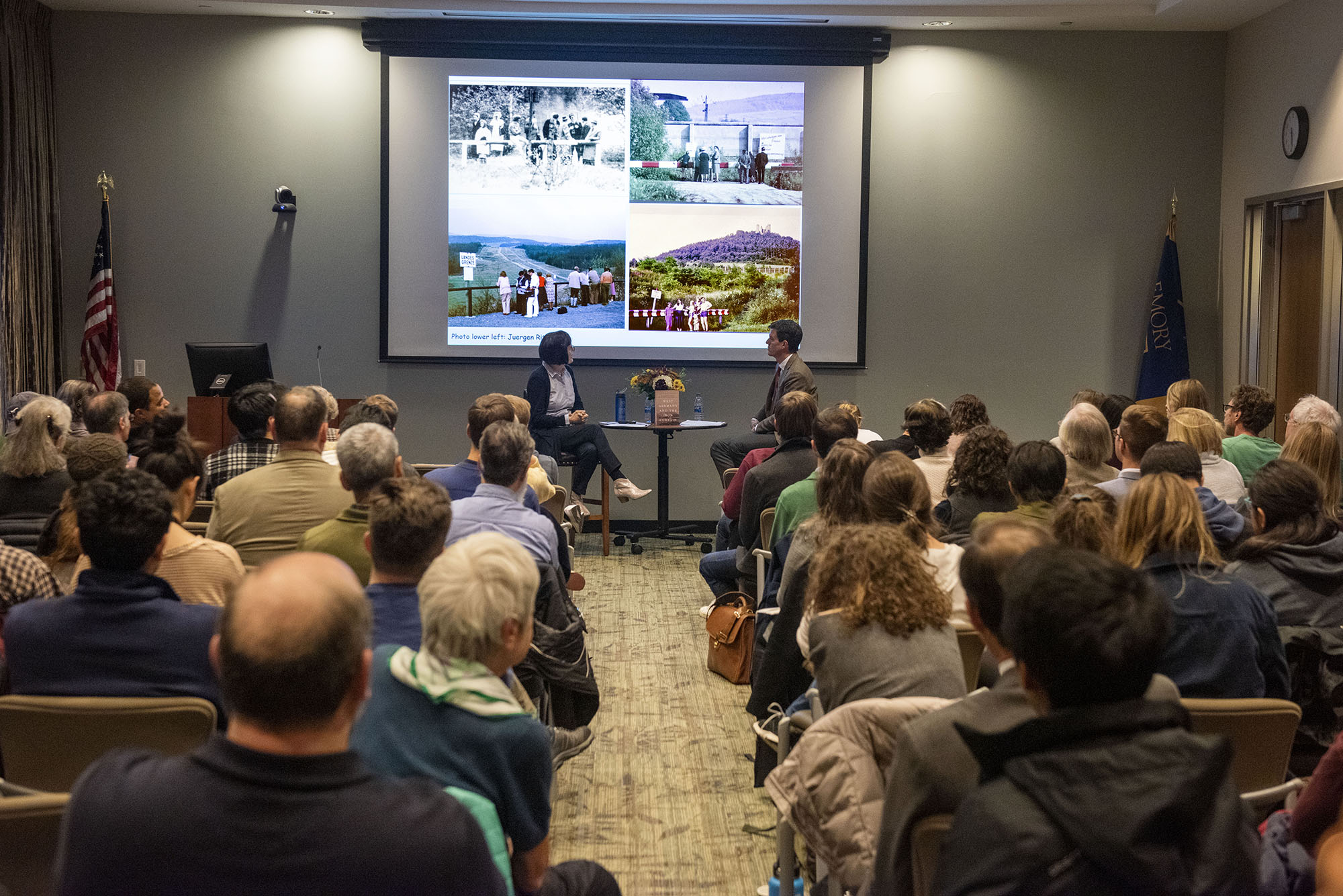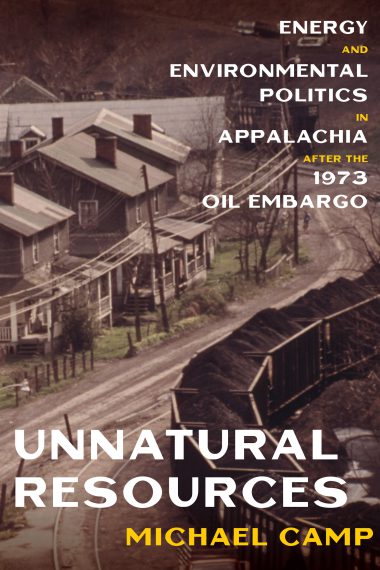Astrid M. Eckert, Associate Professor of History, published West Germany and the Iron Curtain: Environment, Economy, and Culture in the Borderlands with Oxford University Press in October 2019. Frank Biess (University of California, San Diego) offers the following review of the work: “This brilliant book is a timely reminder of how borders and walls remake the human and natural environments they seek to divide. Deeply researched and deftly written, West Germany and the Iron Curtain is a major accomplishment that is certain to have a lasting impact on the field.”
Below, Dr. Eckert offers a glimpse into the making of the monograph as a part of the History Department’s series on new faculty publications.
Books are produced over years if not decades. Give us a sense of the lifespan of this book, from initial idea to final edits.
This book took me eleven years. Of course that does not mean that I engaged with the project every waking hour over those years. There were times of intense immersion during the summers and during occasional leave time; and then there were times when my attention was needed elsewhere and the book project moved to the back burner for a while. What I try to convey to our students is that you really need to be passionate about your dissertation and book project. Given the time such projects take, without a deep commitment and this passion, you would run out of steam. You also need to pace yourself and break down the project into manageable portions. Finally, it helps to remember that everything always takes longer than you think! The production process holds many surprises, from copyright issues for images to staff changes at the publisher’s offices.
What was the research process like?
I visited nineteen archives with records of state and non-state actors. I interviewed a number of people, mostly nature conservationists, and corresponded with a few former East German border guards. At times, I identified relevant interlocutors in the archives or in dated literature from, say, the 1970s and ’80s. In one case, I read an article from 1981 on the re-discovery of the black stork (ciconia nigra) in a certain area of Thuringia (East Germany). Although the piece was very vague on location, I figured out that it must have been close to the Iron Curtain. I contacted the author, and lo and behold, I uncovered the story of how this East German conservationist was called by GDR border guards who had observed a “strange black bird with red feet” in the border area. This might not rock everyone’s boat, but if you are trying to piece together how, exactly, the “hardware” of the Iron Curtain that was placed into the landscape affected wildlife, you live for nuggets like this. In terms of reading, I extended my reach into fields like conservation biology, ornithology, and river ecology. I also read up on nuclear technology for the chapter on a nuclear waste reprocessing and storage facility that the West Germans intended to build right on the Iron Curtain. This obviously does not turn me into a nuclear engineer, but I felt strongly that you need to know the difference between a light-water reactor and a fast breeder, otherwise you can’t explain what’s at stake.
Are you partial to a particular chapter or section?
I love them all because each offers a new perspective on a subject in Cold War German history that many people would have considered to be “settled.” The chapter on tourism to the Iron Curtain has autobiographical roots of sorts. As a high school student, I myself took our French exchange students to the border although I no longer remember why we did this or what they thought about it; presumably it was one of the few things we could do in our rural region that might impress teenagers from Paris. I also like the chapter on transboundary pollution between East and West Germany. Not only is this a staple subject in environmental history and borderland studies, it also allowed me to develop a genuinely new perspective on inter-German relations. Environmental diplomacy has thus far been overlooked in those relations. I point out that the inter-German border was the interface through which West and East Germany encountered each other’s pollution, an encounter that was becoming very asymmetrical over time: during the 1980s the GDR’s infrastructure was in full decline and its decaying industry was literally “bleeding” pollution. West German authorities monitored and engaged East German pollution. I argue that through the evidence of this pollution (the water quality of the Elbe River was so poor that a new classification category had to be invented to describe its pollution level), they were practically handed the evidence of the GDR’s dissolution on a platter but failed to get the message. Still, the negotiations with the GDR over pollution that I address in the chapter generated the knowledge about the causes of East German environmental problems. Only if we take these encounters seriously (although some of them may have looked ineffectual at the time) can we understand the rapid pace of the post-unification ecological restoration in East Germany. To be sure, much of the pollution abatement after 1990 was achieved by switching off the polluter—factories were closed, mines were shut down etc., but I still credit the environmental diplomacy of the 1980s with producing a clear understanding of the challenges and occasionally with generating accurate templates to fix them. Such insight is only possible, of course, if one does not stop analyzing data in 1990 when both countries re-unified. In fact, I found it very illuminating and satisfactory to draw the subject matter of all my chapters well into the post-unification years and at times right into the present.
How does this project align with your broad research agenda?
With its strong focus on environmental history, work on this book has acquainted me with several aspects of this field, namely the history of nature conservation, the history of pollution and environmentalism, and nuclear history. I intend to continue to work in this field with a new project that examines the ways in which one leading industrialized western economy with a high standard of living has related to global environmental resources over time. This new project will probe Germany’s reputation as a “green leader” and presumably show that the paths towards climate-conscious and sustainable practices that it took were serendipitous, contingent, and involved dead ends and unintended consequences.





